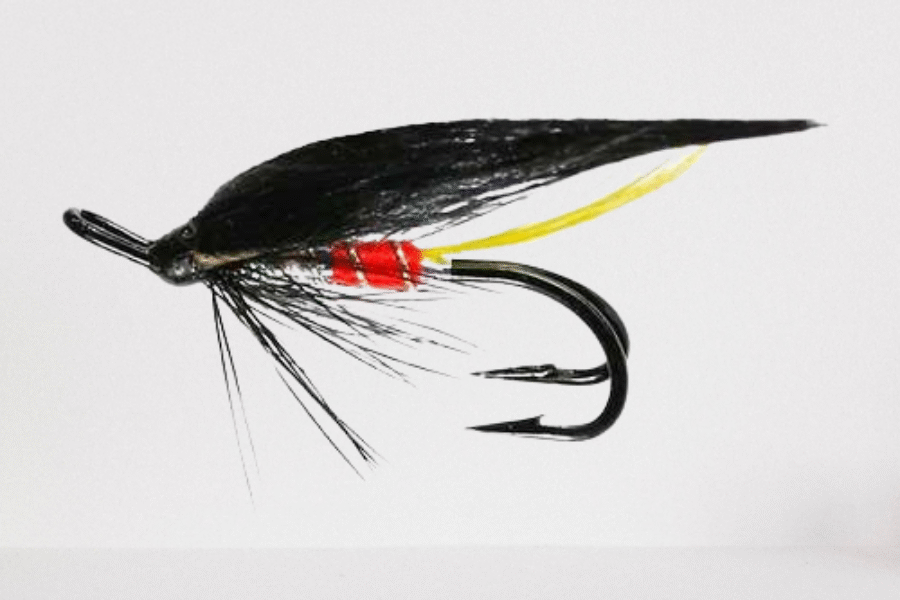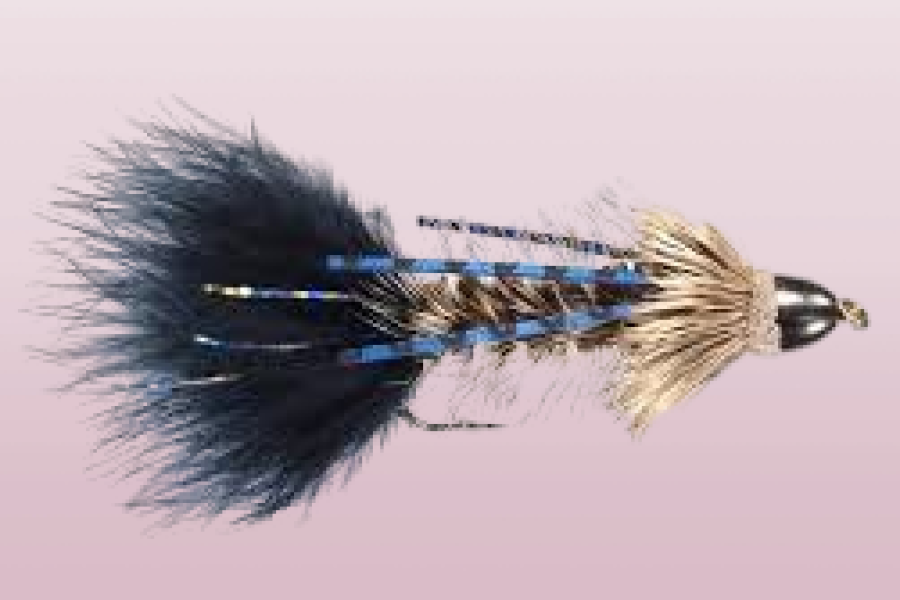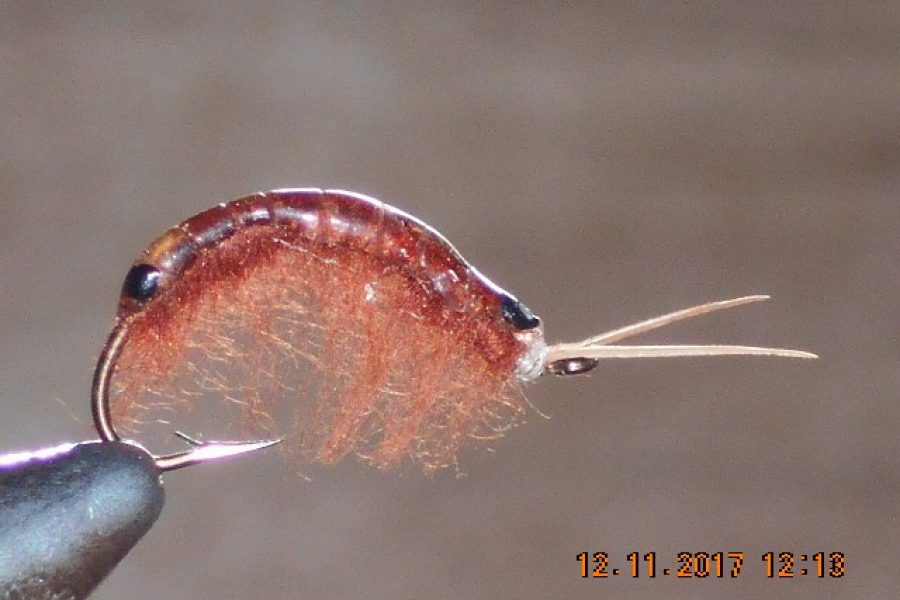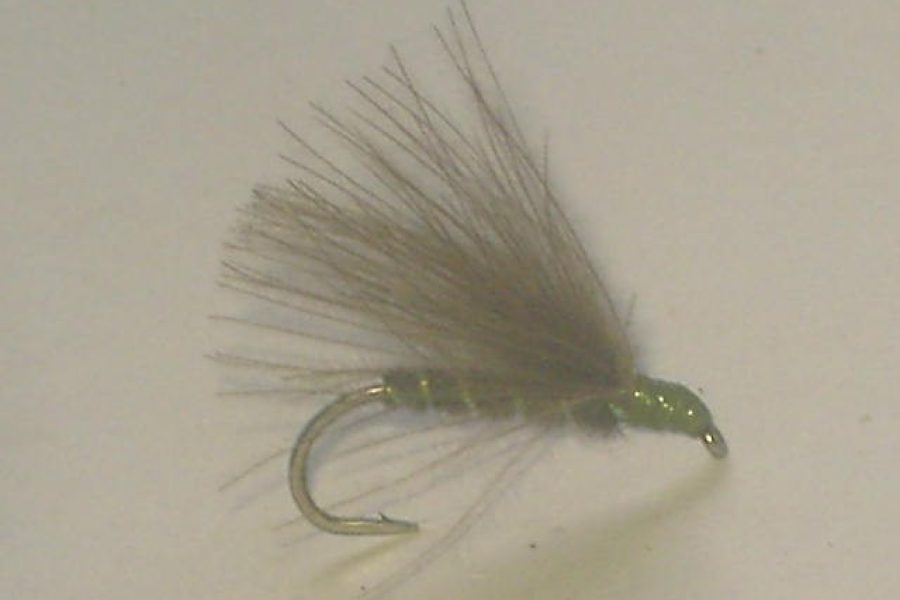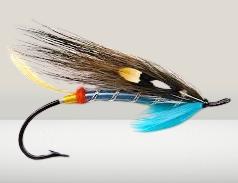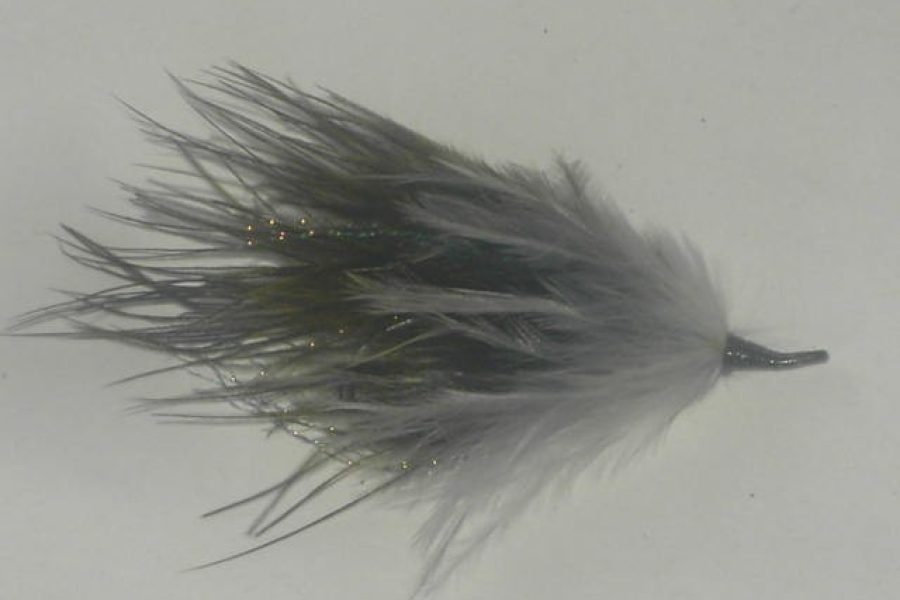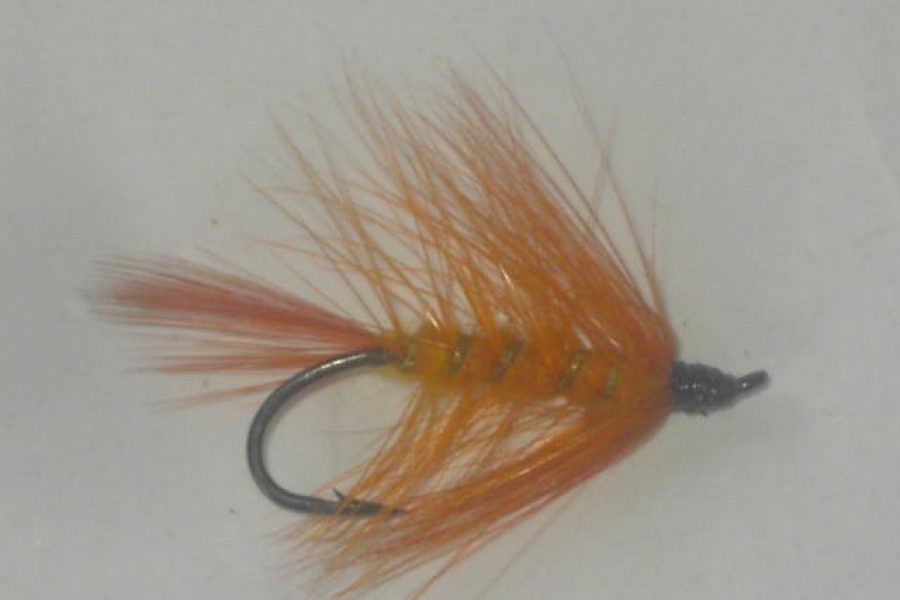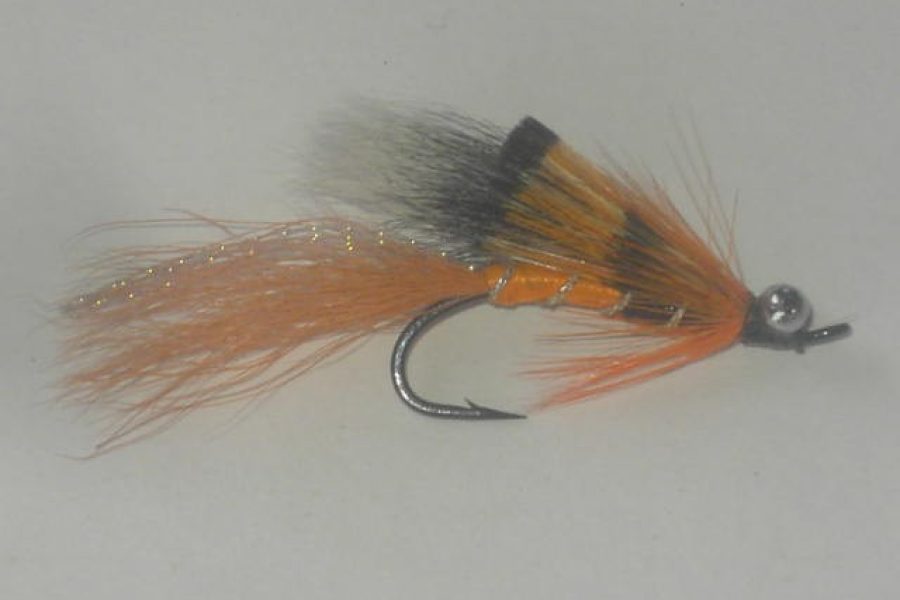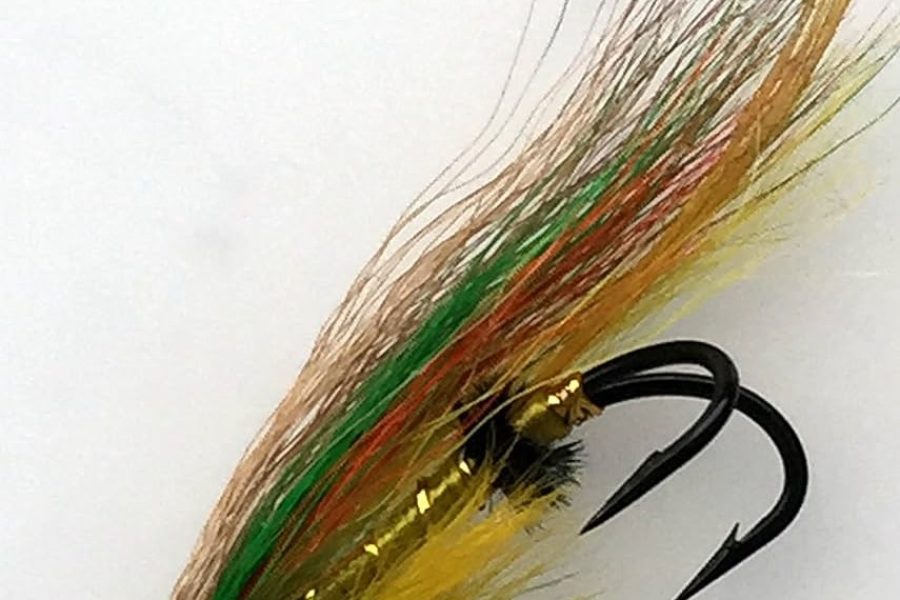Description
The Blue Doctor Hairwing Salmon Fly represents one of the most iconic and enduring patterns in Atlantic salmon fishing history. This classic pattern, a simplified hairwing adaptation of the traditional fully-dressed Blue Doctor, combines elegant design with proven fish-catching effectiveness.
Historical Origins and Development The Blue Doctor pattern originated in the golden age of classic salmon flies, with the hairwing variant emerging as a more practical and durable alternative to the fully-dressed version. This adaptation maintained the pattern’s essential characteristics while making it more accessible to tie and fish.
Key Historical Developments:
- Classic Blue Doctor origins
- Hairwing adaptation development
- Material evolution
- Pattern refinements
- Modern interpretations
- Technical improvements
- Contemporary variations
Design Philosophy and Innovation The pattern’s design reflects deep understanding of:
- Traditional tying methods
- Salmon behavior
- Water conditions
- Light penetration
- Movement characteristics
Premium Materials and Construction Traditional Materials:
- Quality salmon hooks
- Blue floss/silk
- Selected hair wings
- Premium hackles
- Silver tinsel
Modern Adaptations:
- Synthetic materials
- Enhanced durability
- Modern hooks
- Quality threads
- Innovative materials
Technical Specifications
Hook Configuration:
- Style: Classic salmon
- Sizes: 2-8 (standard)
- Strength: Double or treble
- Finish: Bronze/black
- Point: Needle sharp
Body Construction:
- Thread: Black 6/0
- Tag: Silver tinsel
- Tail: Golden pheasant
- Body: Blue floss/silk
- Ribbing: Oval silver tinsel
Wing Assembly:
- Main wing: Grey squirrel
- Underwing: Yellow bucktail
- Throat: Blue hackle
- Cheeks: Jungle cock (optional)
- Head: Black
Fishing Applications
Water Types:
- Atlantic salmon rivers
- Clear streams
- Medium currents
- Deep pools
- Various conditions
Seasonal Effectiveness:
Spring:
- Early season conditions
- Cold water techniques
- High water situations
- Variable depths
- Multiple presentations
Summer:
- Clear water methods
- Morning/evening fishing
- Bright conditions
- Surface film
- Deep running
Fall:
- Pre-spawn periods
- Changed water
- Aggressive takes
- Multiple depths
- Various speeds
Advanced Fishing Methods
Traditional Techniques:
- Classic Swing
- Down and across
- Speed control
- Depth management
- Line mending
- Angle adjustments
- Modern Adaptations
- Strip retrieve
- Pulse techniques
- Dead drift
- Sink and draw
- Multiple depths
Water Reading and Strategy
Key Factors:
- Current speed
- Depth evaluation
- Structure location
- Temperature
- Light conditions
Strategic Approaches:
- Entry point selection
- Drift planning
- Coverage patterns
- Depth control
- Speed adjustment
Environmental Adaptations
Light Conditions:
- Bright sunshine
- Overcast days
- Early morning
- Evening light
- Low light effectiveness
Water Clarity:
- Crystal clear
- Slightly colored
- Stained water
- Post-rain
- Variable visibility
Modern Variations
Size Adaptations:
- Traditional sizes
- Scaled versions
- Custom ties
- Situation-specific
- Water-matched
Pattern Variations:
- Classic style
- Modern materials
- Hybrid designs
- Color adaptations
- Seasonal options
Technical Considerations
Leader Setup:
- Length selection
- Tippet material
- Breaking strength
- Knot choice
- System balance
Equipment Matching:
- Rod weight
- Line type
- Reel balance
- Leader system
- Terminal tackle
Conservation and Durability
Material Selection:
- Environmental impact
- Longevity factors
- Strength requirements
- Replacement needs
- Storage considerations
Maintenance:
- Post-use care
- Storage methods
- Repair techniques
- Material preservation
- Long-term durability
Advanced Applications
Specialized Techniques:
- Two-handed casting
- Spey presentations
- Switch rod methods
- Technical mending
- Line control
Tactical Adaptations:
- Weather conditions
- Water levels
- Fish behavior
- Seasonal changes
- Time of day
Traditional Presentation Methods
Classic Techniques:
- Down and across
- Wet fly swing
- Greased line
- Upstream dry
- Dead drift
Modern Adaptations:
- Strip-swing combinations
- Induced takes
- Sink-tip presentations
- Multi-depth coverage
- Speed variations
Advanced Water Reading
Current Analysis:
- Seam identification
- Depth transitions
- Structure influence
- Temperature breaks
- Holding lies
Strategic Planning:
- Coverage efficiency
- Presentation angles
- Rest periods
- Pattern rotation
- Time management
Seasonal Considerations
Spring Tactics:
- Cold water techniques
- High water methods
- Early season approaches
- Fish behavior patterns
- Energy conservation
Summer Strategies:
- Clear water presentations
- Light penetration factors
- Temperature considerations
- Feeding patterns
- Time of day
Fall Methods:
- Pre-spawn behavior
- Water temperature changes
- Migration patterns
- Aggressive triggers
- Weather influences
Advanced Rigging Techniques
Leader Construction:
- Formula-based designs
- Situation-specific setups
- Knot selection
- Material matching
- Breaking strength
Line Management:
- Mending techniques
- Tension control
- Swing speed
- Depth adjustment
- Strike detection
Future Developments
Emerging Trends:
- New materials
- Design refinements
- Tying techniques
- Fishing methods
- Pattern variations
Innovation Areas:
- Material technology
- Construction methods
- Presentation techniques
- Environmental considerations
- Performance enhancement
The Blue Doctor Hairwing Salmon Fly represents the perfect fusion of traditional design and modern practicality. Its sophisticated engineering incorporates centuries of salmon fishing knowledge with contemporary materials and techniques, creating a pattern that consistently produces results across varying conditions. Whether fishing classic presentations or modern adaptations, this pattern delivers exceptional performance through its carefully calculated design elements and versatile presentation capabilities.

